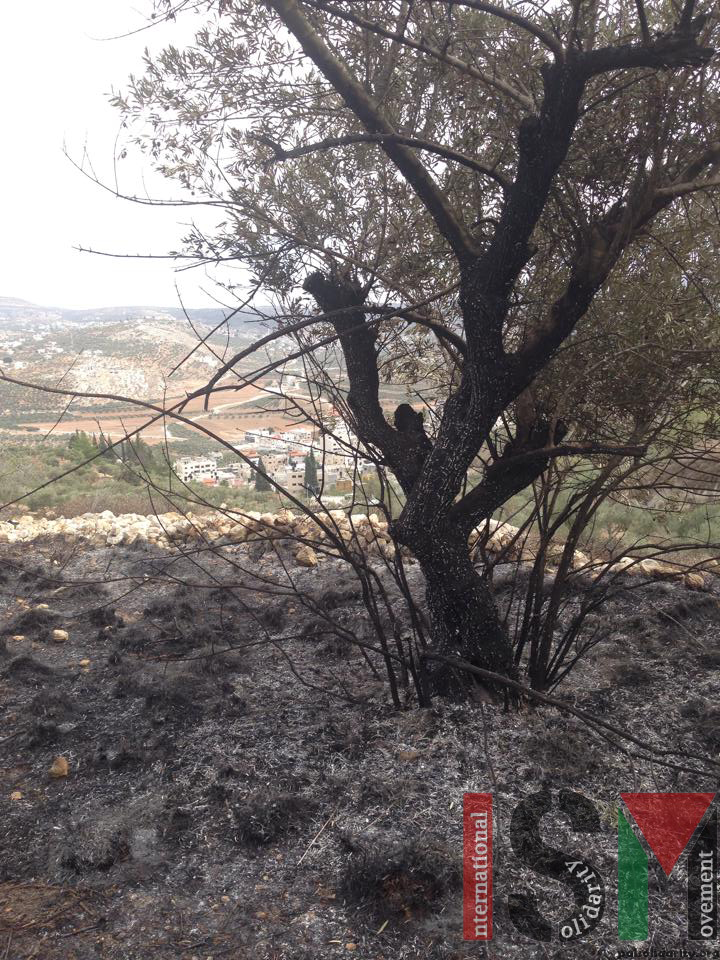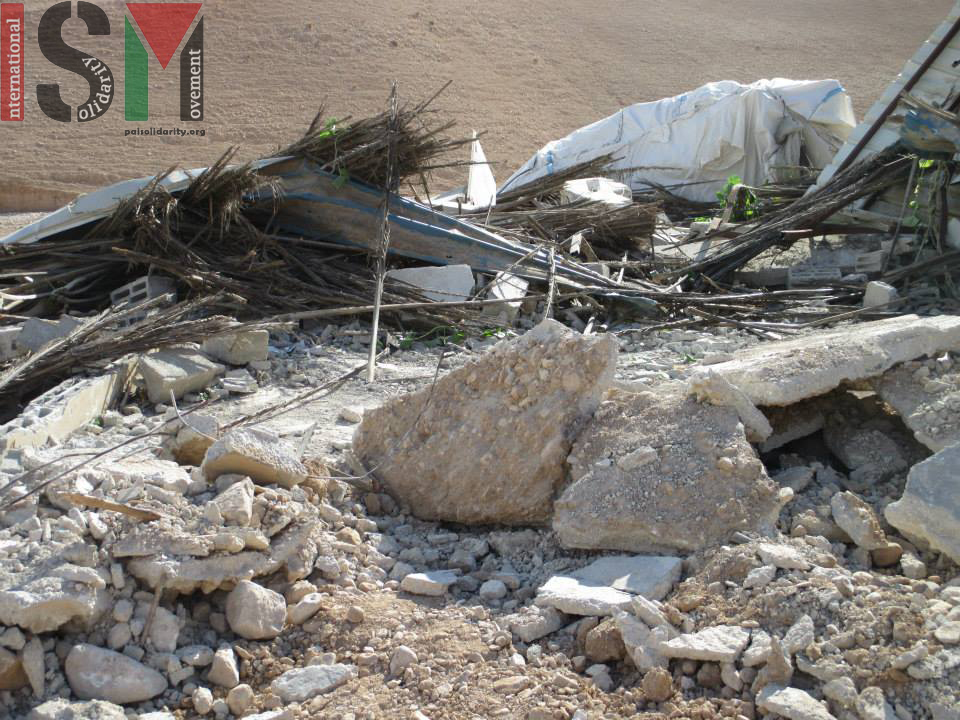Category: Nablus
-
Israeli forces demolish three houses, and several water pipes and roads in village near Nablus
4th November 2014 | International Solidarity Movement, Nablus Team | Khirbet Al-Tawil, Occupied Palestine Early on Monday morning, while the inhabitants of the village of Khirbet Al-Tawil, near Aqraba (Nablus), were sleeping, eight military vehicles, and 30-40 Israeli soldiers entered the village. Within two hours the military had demolished three houses, and several water pipes and roads. The…
-
Zionist settlers burn Palestinian olive grove
22nd October 2014 | International Solidarity Movement, Nablus team | Huwwara, Occupied Palestine This morning at approximately 09:30, settlers from the illegal settlement of Yizhar set fire to a Palestinian olive field above Huwwara village, just outside of Nablus. The settlers set the land on fire from the top of the hill. People from the village…
-
Family home and five other structures demolished by Israeli military
21st October 2014 | International Solidarity Movement, Nablus team | Jordan Valley, Occupied Palestine On October 20th, the Israeli military destroyed six structures belonging to a family in the village of al Jiftlik, in the Jordan Valley. At approximately 6:00 am, Israeli soldiers destroyed the family home of Mohammed Mousa Mohammed Abohernam, as well as five other buildings,…



